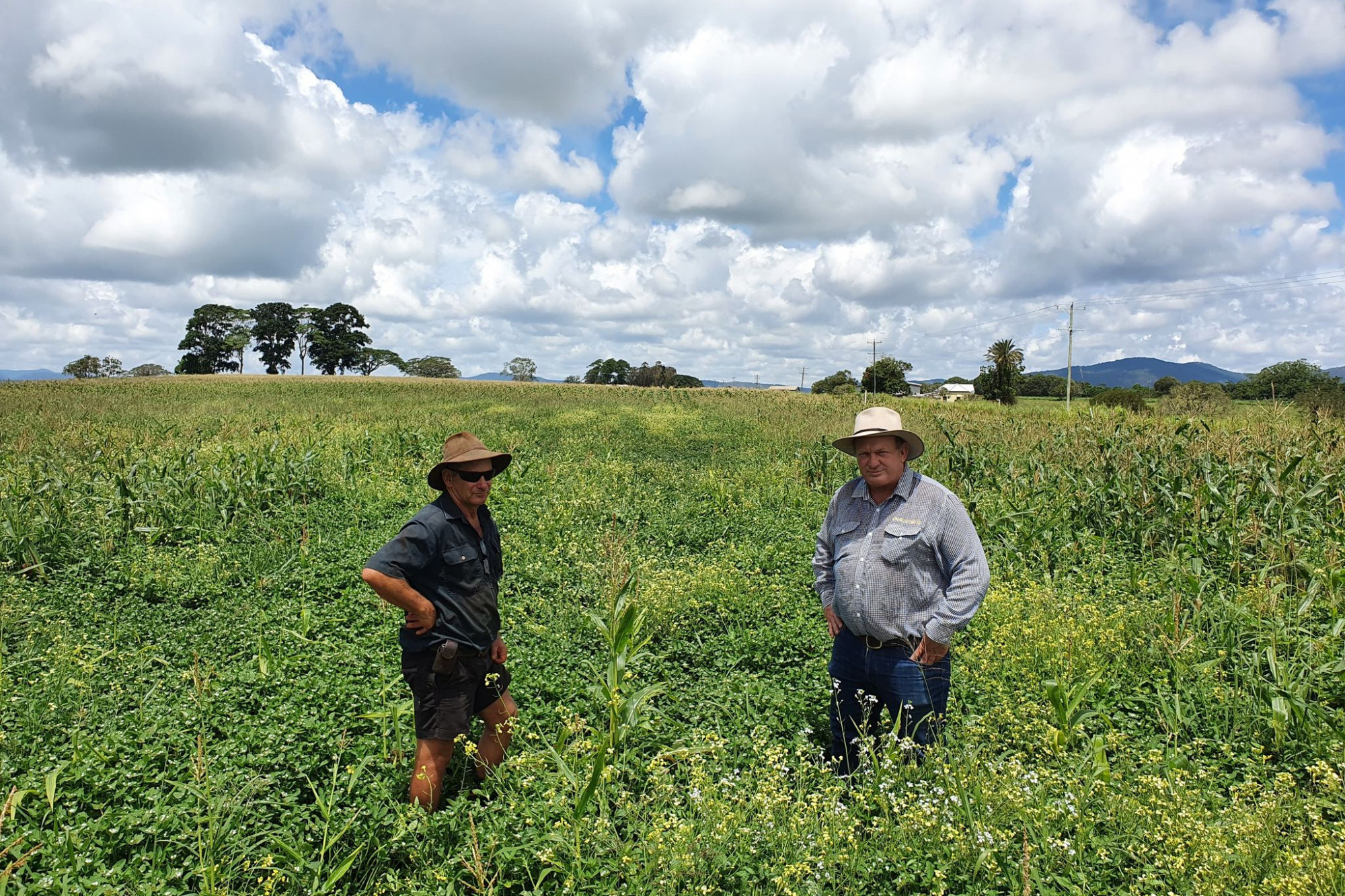Community & Business
10 April, 2021
Fall armyworm becomes a national issue for farmers
WE are now 14 months on from the first sightings of the Fall army worm in Australia and the pest has only widened its area of relentless attack on high value farm crops across the country.

BY SALLY TURLEY
WE are now 14 months on from the first sightings of the Fall army worm in Australia and the pest has only widened its area of relentless attack on high value farm crops across the country.
Third generation maize farmer, Geoff Riesen of Kulara near Kairi has not had time to count the cost of the destruction this ruthless pest has caused, but knows it runs into figures of around $10,000 per paddock for chemical alone, with the cost of plane hire and his own labour on top of that.
“I only finished spraying the latest crop last week and still haven't received the bill for that one yet. There is no future in farming like this. Farmers who are still growing maize next year will have to increase prices significantly to cover costs,” said Geoff Riesen.
“A lot of farmers have forgotten about the army worms at the moment, because as the crop matures and becomes less palatable, the ferocity of their attack tends to slow down a bit.
“Some crops are actually looking beautiful at the moment, but its hard to forget how much it has cost us to achieve that result,” Mr Riesen said.
"It's a bit like a quietly destructive cyclone and is definitely hurting the bank account. We won't know the real extent of the costs until after we have harvested in late April/May and calculated the losses in yield we have suffered. Because the worms have eaten the centre out of many of the cobs, they will not have been pollinated properly and some farmers I have been speaking to are anticipating their yields will plummet from 4 tonnes/ acre back to 1 tonne/acre," Mr Riesen said.
“I recently planted a trial paddock with a New Zealand winter corn variety to see if the later planted crop might escape the savaging the summer crops experienced, but there has been no change. There is infestation in every plant. The only advantage may be that this variety might continue growing a bit longer through the winter,” he said.
“Hopefully the government can earmark some funds for research into new methods of control. We don't want to be continually spraying poisons around our homes and our families, so it would be ideal if some natural control methods could be identified.
“Even if we do spray our crops and manage to knock out the pests on our patch, we are surrounded by paddocks containing other crops and grass for cattle and worms from there will just move across to the maize once the spray settles,” Mr Riesen lamented.
Concerned for the farmers in his electorate, Member for Hill, Shane Knuth has already raised these issues with Minister for Agriculture, Mark Furner, highlighting the damage that has been done throughout the Hill electorate and the fears he holds that the spread of this pest could create a national disaster across Australia.
“It is the grain fellows who are going to be hurt the most, as the worms could come back and attack the cobs as they ripen. The silage gets harvested fairly green and the worms can get chopped up along with the leaves,” Mr Riesen said.
“Fall army worm has been devastating crops down around Beaudesert and the Burdekin and agronomists are finding the worms are developing resistance to sprays alarmingly quickly. We could go through this all over again after planting next summer.
“I would consider planting genetically modified (GM) corn as an alternative to regular corn. I would be willing to trial a crop of GM corn and see if it works as well as it has in America.
“I know some farmers who have signed up for sugarcane for next year, and I have been thinking it is probably a good time to grass the home farm down and run a few cattle.
“You never get ahead jumping in and out of industries, but we can't go on like this. We will just have to hope a solution will be found before it is too late,” Mr Riesen said.


